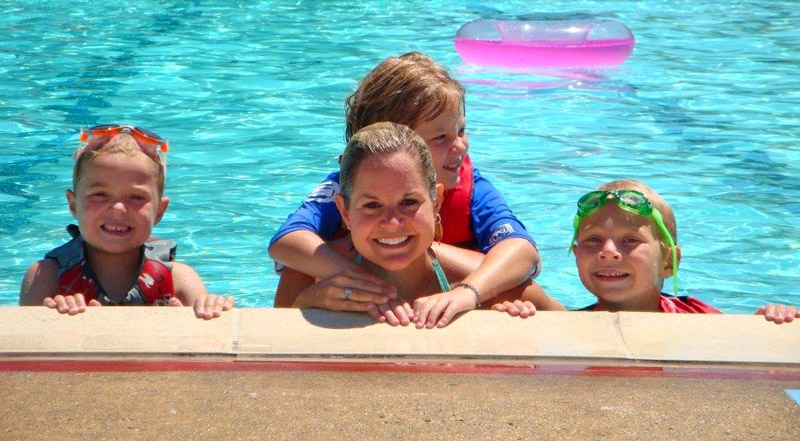Summer is a time of fun in the sun and making new memories.
Although my children are now grown, I distinctly remember the days when they could not wait for their summer break to begin. As a parent, this time of year brought both feelings of excitement and apprehension. I wondered how I would keep them busy – and happy – without their school routine.

Devereux National Director of Family Engagement Amy Kelly, MBA, MNM,
offers enriching – and fun – summer activities for families of children with disabilities.
This was especially true for my daughter, Annie, who has autism and intellectual and developmental disabilities. While all children do better with a schedule, those who have disabilities thrive with predictability.
If you are looking to create a summer routine for your child, there are some activities you can incorporate into your calendar to provide structure, a sense of stability – and fun.
- Get outside – Go swimming at a local pool, use sprinklers at home or visit a park and take a nature walk. You can pack bubbles and a picnic lunch so you will be set for a full day of fun. Playing outside can help your child reduce stress and anxiety, and improve their physical fitness, strength and coordination.
- Do arts and crafts – Grab your paint sets, bead kits and clay. Draw or make a collage. Having a variety of supplies can provide sensory input for your child and keep their interests high. Arts and crafts can help your loved one develop fine motor skills and allow them to express themselves creatively.
- Move to music – Dancing or moving to music is a great way to burn off energy, and improve balance and coordination. You can even work on a group dance and invite other members of your family to join in.
- Incorporate sensory play – Set up “sensory stations” around your home. Fill containers with items, such as uncooked rice, dried beans, sand or water. These stations can provide hours of sensory stimulation in a safe environment.
- Find a summer camp – There are a variety of both in-person and virtual summer camps for youth with disabilities that are designed to foster independence and help your child build social skills. Many offer full supports, and some allow aides to attend.
With a little innovation and planning, you can create memorable moments and help your child enjoy a successful summer break.
Amy Kelly, MBA, MNM, is the mother to Danny, Annie and Ryan. Annie is diagnosed with moderate to severe autism, verbal apraxia, intellectual and developmental disabilities and general anxiety disorder. Amy is the National Director of Family Engagement for Devereux Advanced Behavioral Health, one of the nation’s oldest and largest nonprofit providers of behavioral healthcare, and serves as a family representative on several special needs boards in the community, locally and nationally. In addition, she participates with other patients and families in efforts supported by the Autism Care Network, and serves on an executive committee for the American Academy of Pediatrics to assist children and adolescents with special needs and the importance of quality care.



